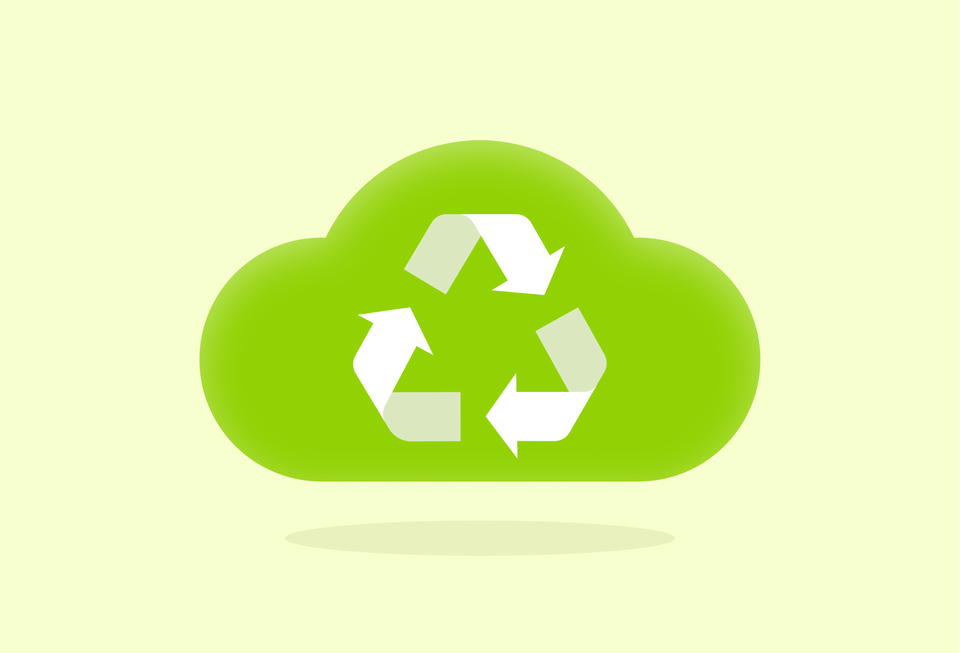The Importance of Sustainability in Tech: The Rise of Green SaaS Solutions

In response to climate change and finite global resources, sustainability has become a core priority across all industries, including the technology sector. For Software-as-a-Service (SaaS) companies, which rely heavily on data centers and cloud infrastructure, implementing sustainable practices represents both a challenge and an opportunity to lead the industry toward reduced environmental impact. The shift toward "Green SaaS" signals a pivotal response to growing expectations for environmental accountability and resource efficiency within tech. As a testament to this demand, the SaaS market is projected to reach $908.21 billion by 2030, with an impressive compound annual growth rate of 18.7%.
Why Sustainability Matters in SaaS
Environmental Impact of Data Centers
Data centers, essential to SaaS operations for storing, managing, and processing vast amounts of data, are known for their high electricity consumption and substantial contribution to global carbon emissions. According to the International Energy Agency (IEA), data centers currently account for approximately 1% of global electricity demand—a number that is set to increase as digitalization accelerates worldwide. This high energy use creates an imperative for SaaS providers to adopt sustainable practices to curb their environmental footprint.
Growing Customer Expectations
With heightened awareness of environmental issues, customers, particularly in B2B sectors, are increasingly choosing to work with companies that commit to sustainability. Many now expect transparency around environmental, social, and governance (ESG) practices, demanding alignment between their values and those of their partners. For SaaS companies, prioritizing green practices is becoming essential for meeting client expectations and fostering long-term partnerships.
Regulatory Pressures
Governments worldwide are tightening regulations around energy use, waste management, and carbon emissions. These regulations create an urgent need for SaaS providers to adopt sustainable practices not only to comply with legal requirements but also to align with evolving global standards on sustainability. For many companies, proactive compliance represents a strategic move to avoid penalties and maintain their competitive edge.
How Green SaaS Solutions Are Emerging
Renewable Energy and Carbon Neutrality
To reduce their carbon footprint, major cloud providers are developing energy-efficient storage solutions and transitioning to renewable energy. Companies like Google Cloud, AWS, and Microsoft Azure have committed to 100% renewable energy for their operations within the next decade. Many SaaS providers are also prioritizing carbon neutrality by offsetting emissions or choosing cleaner energy sources for their data centers. These steps reflect a growing commitment to reducing reliance on fossil fuels.
Energy-Efficient Coding and Data Management
Optimizing software code to reduce processing power requirements plays a crucial role in lowering energy consumption. Additionally, efficient data management practices—including data compression, deduplication, and optimized server requests—can significantly reduce a company's energy footprint. These approaches underscore the importance of strategic data handling and efficient coding as key components in creating sustainable SaaS solutions.
Steps to Integrate Sustainability into SaaS Operations
Review Current Practices
Start with a comprehensive review of current operations, focusing on energy consumption, waste management, and resource usage. This assessment provides a clear baseline from which to measure future improvements in sustainability.
Set Clear Goals
Establishing specific, measurable sustainability goals is essential for tracking progress and fostering accountability. Goals may include reducing carbon emissions by a defined percentage or shifting entirely to renewable energy sources.
Invest in Sustainable Technologies
Adopting innovative technologies that enhance sustainability is critical. This includes using energy-efficient hardware, choosing cloud solutions powered by renewable energy, and implementing tools that optimize data management and processing efficiency.
Engage Employees
Actively involve employees in sustainability efforts by offering training on eco-friendly practices, encouraging participation in green initiatives, and recognizing their contributions. An engaged workforce is more likely to propose innovative ideas that further the company’s sustainability goals.
Conclusion
Sustainability in technology extends beyond energy savings; it reshapes how we view technology's role in building a greener future. By adopting practices that focus on long-term environmental impact—such as energy-efficient algorithms, minimizing unnecessary processing, and selecting eco-conscious suppliers—SaaS companies can play a pivotal role in creating a future where technology and sustainability thrive together. With a commitment to sustainable practices, the tech industry can contribute to a more resilient and environmentally responsible world.
Learn how DeepSales leads the tech industry toward a greener future.
